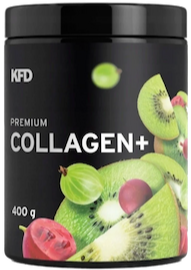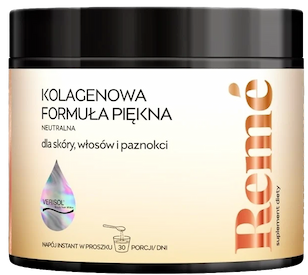Type 3 collagen (Supplements, benefits, and use)
Type 3 collagen is responsible for healing and regeneration. See what else you need to know about it.


Learn more about our editorial process
.

Learn more about our editorial process
.

Learn more about our editorial process
.

Learn more about our editorial process
.
Why you can trust us
Articles on Natu.Care are written based on scientific research, data from government websites and other reliable sources. The texts are written in cooperation with doctors, nutritionists and other health and beauty experts. Articles are reviewed before publication and during significant updates.
.Learn more about our editorial process
.Information about advertisements
Content on Natu.Care may contain links to products from the sale of which we may receive a commission. When creating content, we adhere to high editorial standards and take care to be objective about the products discussed. The presence of affiliate links is not dictated by our partners, and we select the products we review ourselves completely independently.
.Learn more about our terms and Conditions
.Third on the list, and second in your body - is type III collagen. Type 3 collagen builds blood vessels, ensures better wound healing, regeneration and elasticity of your tissues, and on top of that it 'works' with type 1 collagen.
Together with pharmacist and educator Ilona Krzak, M.D., we will tell you everything you need to know about it in order to lead a healthier and better life.
From this article you will learn:
- What type 3 collagen is.
- What it is.
- What type III collagen is responsible for in your body. .
- What is the difference between type 1, type 2 and type 3 collagen.
- What is type 3 collagen?
- What collagen supplements experts recommend. .
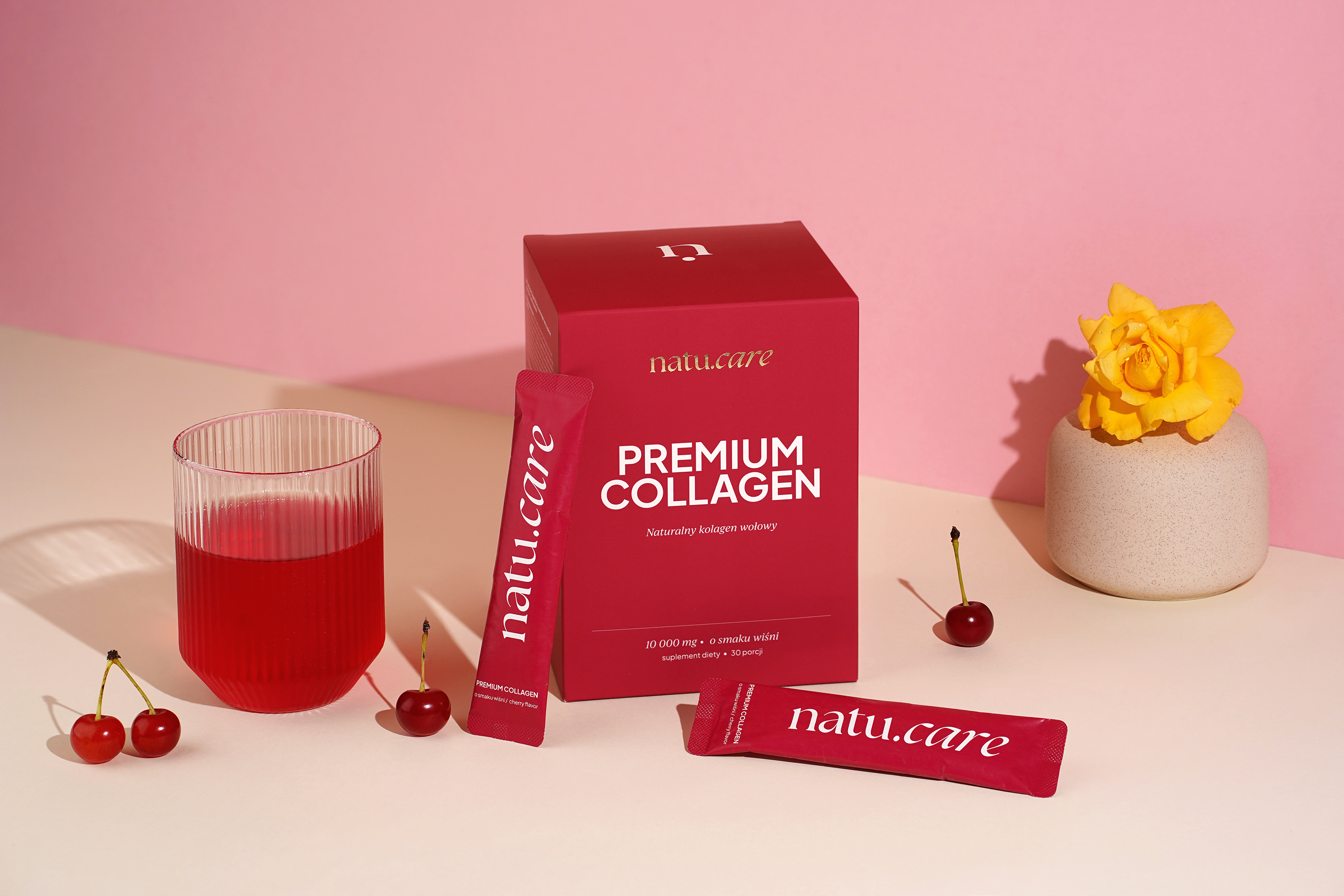
Sprawdź, jak może on zadbać o zdrowie Twoich stawów i urodę! Kolagen Premium (10 000 mg) wiśnia
Natu.Care Kolagen Premium Sport 10000 mg, wiśnia
Natu.Care Kolagen Premium dla zdrowia stawów, skóry, paznokci i włosów. Wołowy kolagen w optymalnej dawce 10 000 mg. Przebadany przez niezależne laboratorium.
Sprawdź cenę
Ten kolagen dobrze się rozpuszcza, super smakuje – jak taki soczek wiśniowy. Moje włosy przestały wypadać, są gęstsze i zdrowsze a cera promienna.@Dominika P.
See also:
.
- Most Powerful Collagen - Ranking .
- Collagen for wrinkles
- Collagen deficiency
- Collagen for skin
- Collagen for the face
- Hair collagen
- Collagen for stretch marks
- Collagen for cellulite
- Collagen for acne
- Collagen for joints
- Collagen for bones
What is type 3 collagen?
.
Collagen type III is a protein found in many tissues of the body, including the skin, lungs, liver, muscles or blood vesselsand. It provides structural support and helps maintain their integrity and elasticity. Type 3 collagen is important for wound healing, tissue regeneration and in blood clotting.
Collagen type III is the second most common type of collagen in the body and is often found with collagen type I, although it has less tensile strength. Over the years, type III collagen is replaced by type I collagen.
Best collagen - ranking of recommended products
.
Check out the expert-selected collagen supplements that also include type III collagen.
.
Natu.Care Collagen Premium 5000 mg, mango-maracuja

- Collagen content: 5000 mg marine collagen hydrolysate
- .
- Additional active ingredients: vitamin C, low molecular weight hyaluronic acid (and L-theanine and coenzyme Q10 in cocoa flavoured collagen or vitamin A and vitamin E in mango–passion fruit flavoured collagen)
- .
- Form: powder sachets
- .
- Dose: 1 sachet per day
- .
- Sufficient for: 30 days
- .
Product description
Fish collagen from the Natu.Care brand in a dose of 5000 mg. The formula contains a sufficient portion of the active substance to positively affect your joints, musculoskeletal system and immunity.
Take care of your tendons, joint cartilage, ligaments, muscles and even bones by supplying them with the building blocks to function properly. Move without bólu and provide the necessary support for any physical activity.
And as a „gratis” to regular supplementation, you will also receive firm skinóhand, healthy and shiny hair and strong nails.
Natu.Care Premium Collagen is available in two flavours – Cacao Bloom and Rise&Shine. Both formulas are based on the following active ingredients: marine collagen hydrolysate, wild roseóbud extract and hyaluronic acid.
Additionally, Cacao Bloom contains natural L-theanine, coenzyme Q10 and defatted Dutch cacao. Rise&Shine instead contains vitamin E and vitamin A.
These are the best collagens in the world.
These best fish collagens on the market also rós taste – Cacao Bloom is a treat for chocolate lovers. Rise&Shine will appeal to those whoóenjoy the refreshing taste of mangoófruit and passion fruit.
Pros and cons
Fish collagen from the Natu.Care brand in a dose of 5000 mg. The formula contains a sufficient portion of the active substance to positively affect your joints, musculoskeletal system and immunity.
Take care of your tendons, joint cartilage, ligaments, muscles and even bones by supplying them with the building blocks to function properly. Move without bólu and provide the necessary support for any physical activity.
And as a „gratis” to regular supplementation, you will also receive firm skinóhand, healthy and shiny hair and strong nails.
Natu.Care Premium Collagen is available in two flavours – Cacao Bloom and Rise&Shine. Both formulas are based on the following active ingredients: marine collagen hydrolysate, wild roseóbud extract and hyaluronic acid.
Additionally, Cacao Bloom contains natural L-theanine, coenzyme Q10 and defatted Dutch cacao. Rise&Shine instead contains vitamin E and vitamin A.
These are the best collagens in the world.
These best fish collagens on the market also rós taste – Cacao Bloom is a treat for chocolate lovers. Rise&Shine will appeal to those whoóenjoy the refreshing taste of mangoófruit and passion fruit.
Additional information
Fish collagen from the Natu.Care brand in a dose of 5000 mg. The formula contains a sufficient portion of the active substance to positively affect your joints, musculoskeletal system and immunity.
Take care of your tendons, joint cartilage, ligaments, muscles and even bones by supplying them with the building blocks to function properly. Move without bólu and provide the necessary support for any physical activity.
And as a „gratis” to regular supplementation, you will also receive firm skinóhand, healthy and shiny hair and strong nails.
Natu.Care Premium Collagen is available in two flavours – Cacao Bloom and Rise&Shine. Both formulas are based on the following active ingredients: marine collagen hydrolysate, wild roseóbud extract and hyaluronic acid.
Additionally, Cacao Bloom contains natural L-theanine, coenzyme Q10 and defatted Dutch cacao. Rise&Shine instead contains vitamin E and vitamin A.
These are the best collagens in the world.
These best fish collagens on the market also rós taste – Cacao Bloom is a treat for chocolate lovers. Rise&Shine will appeal to those whoóenjoy the refreshing taste of mangoófruit and passion fruit.
User review
Fish collagen from the Natu.Care brand in a dose of 5000 mg. The formula contains a sufficient portion of the active substance to positively affect your joints, musculoskeletal system and immunity.
Take care of your tendons, joint cartilage, ligaments, muscles and even bones by supplying them with the building blocks to function properly. Move without bólu and provide the necessary support for any physical activity.
And as a „gratis” to regular supplementation, you will also receive firm skinóhand, healthy and shiny hair and strong nails.
Natu.Care Premium Collagen is available in two flavours – Cacao Bloom and Rise&Shine. Both formulas are based on the following active ingredients: marine collagen hydrolysate, wild roseóbud extract and hyaluronic acid.
Additionally, Cacao Bloom contains natural L-theanine, coenzyme Q10 and defatted Dutch cacao. Rise&Shine instead contains vitamin E and vitamin A.
These are the best collagens in the world.
These best fish collagens on the market also rós taste – Cacao Bloom is a treat for chocolate lovers. Rise&Shine will appeal to those whoóenjoy the refreshing taste of mangoófruit and passion fruit.
Natu.Care Collagen Premium 10000 mg, cherry

- Collagen content: 10,000 mg of hydrolyzed bovine collagen
- Additional active ingredients: vitamin C, low molecular weight hyaluronic acid, glucosamine, chondroitin, extract of Indian frankincense resin (boswellia serrata)
- Form: powder sachets for drinking
- Serving: 1 sachet per day
- Lasts for: 30 days
Product description
One of the strongest collagens on the market, providing as much as 10,000 mg per daily serving. This product can effectively support the condition of joints, skin, hair, and nails.
With this supplement, you will support your skeletal and joint system as well as your beauty, helping you visually halt the aging process and feel rejuvenated!
Pros and cons
Pros:
- The daily portion of collagen is very large – as much as 10,000 mg.
- Proven collagen formula – COLLinstant, whose effectiveness has been confirmed in clinical studies.
- Effective dose of hyaluronic acid, which additionally moisturizes the skin and positively affects joint health.
- Vitamin C supports the body's natural collagen production.
- Glucosamine is a fundamental building block of compounds found in joint cartilage and a component of collagen that gives elasticity to connective tissue in tendons.
- Chondroitin is a natural component found in the human body, mainly in cartilage. This large molecule (mucopolysaccharide) has the ability to absorb water, which helps maintain the elasticity and resilience of cartilage.
- Frankincense resin extract supports blood circulation and joint mobility and reduces their stiffness. It may help alleviate inflammatory conditions.
- The composition has been tested by the independent and accredited J.S. Hamilton laboratory.
Cons:
- None.
Additional information
Users praise Natu.Care Collagen Premium for the easy dissolving of the powder.
ALLDEYNN Collarose Fish
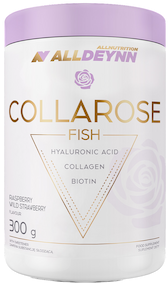
- Collagen content: 5000 mg hydrolysate fish collagen VERISOL F® .
- Additional active ingredients: vitamin C, hyaluronic acid, biotin
- Form: powder to dissolve in water .
- Dose: one scoop (6 g) of powder daily .
- Sufficient for: 50 days .
Product description
Atlantic cod collagen VERISOL F® contained in the formula are easily absorbed collagen peptides of fish origin. Regular supplementation can firm your skinóhand and slow down the ageing process. Your nails will become stronger and stop breaking. The addition of biotin will improve the condition of your hairów. The collagen portion is high enough to also have a good effect on your joints, muscles and bones.
Pros and cons
Atlantic cod collagen VERISOL F® contained in the formula are easily absorbed collagen peptides of fish origin. Regular supplementation can firm your skinóhand and slow down the ageing process. Your nails will become stronger and stop breaking. The addition of biotin will improve the condition of your hairów. The collagen portion is high enough to also have a good effect on your joints, muscles and bones.
Additional information
Atlantic cod collagen VERISOL F® contained in the formula are easily absorbed collagen peptides of fish origin. Regular supplementation can firm your skinóhand and slow down the ageing process. Your nails will become stronger and stop breaking. The addition of biotin will improve the condition of your hairów. The collagen portion is high enough to also have a good effect on your joints, muscles and bones.
Expert and user opinion
Atlantic cod collagen VERISOL F® contained in the formula are easily absorbed collagen peptides of fish origin. Regular supplementation can firm your skinóhand and slow down the ageing process. Your nails will become stronger and stop breaking. The addition of biotin will improve the condition of your hairów. The collagen portion is high enough to also have a good effect on your joints, muscles and bones.
DuoLife Collagen fish collagen 2500 mg
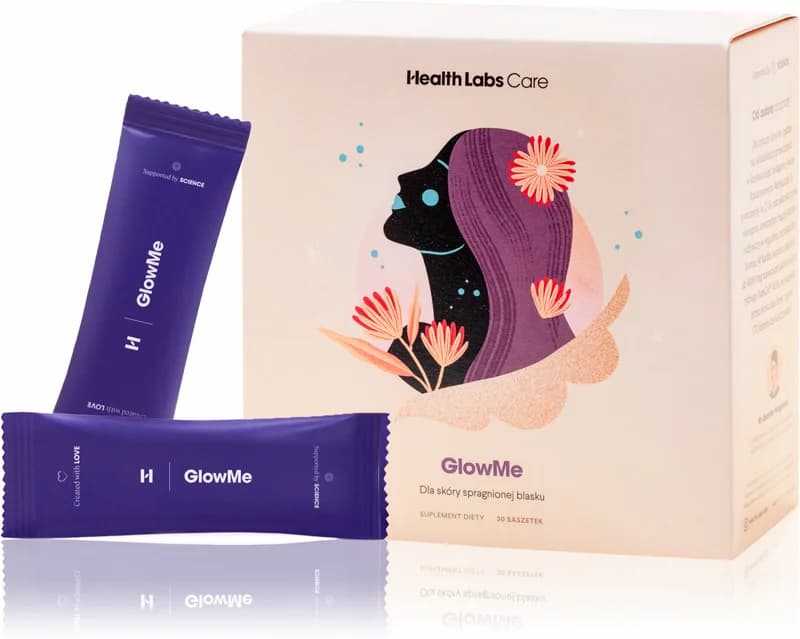
- Collagen content: 2500 mg collagen
- Additional active ingredients: vitamin C, silicon, glucosamine, hyaluronic acid, nettle and bamboo extracts
- Form: liquid to drink .
- Dose:25 ml .
- Sufficient for: 30 days .
Product description
100% natural collagen liquid without unnecessary ingredientsós. The composition of ingredientsós improves the appearance and condition of skinóry, hairów, nails. DuoLife is a good choiceór if you notice the first signs of skinóry ageing or want to stop this process. A tasty liquid, convenient to use.
Pros and cons
100% natural collagen liquid without unnecessary ingredientsós. The composition of ingredientsós improves the appearance and condition of skinóry, hairów, nails. DuoLife is a good choiceór if you notice the first signs of skinóry ageing or want to stop this process. A tasty liquid, convenient to use.
Additional information
100% natural collagen liquid without unnecessary ingredientsós. The composition of ingredientsós improves the appearance and condition of skinóry, hairów, nails. DuoLife is a good choiceór if you notice the first signs of skinóry ageing or want to stop this process. A tasty liquid, convenient to use.
User review
100% natural collagen liquid without unnecessary ingredientsós. The composition of ingredientsós improves the appearance and condition of skinóry, hairów, nails. DuoLife is a good choiceór if you notice the first signs of skinóry ageing or want to stop this process. A tasty liquid, convenient to use.
Pharmovit liquid collagen 10000 mg
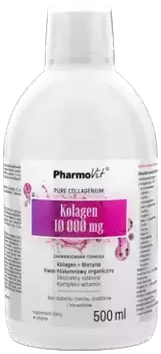
- Collagen content: 10000 mg hydrolysed bovine collagen types I and III .
- Additional active ingredients: hyaluronic acid, natural plant extracts, vitamin C, B vitamins, zinc, vitamin D
- Form: vials .
- Dose: 25 ml .
- Sufficient for: 20 days .
Product description
A solid daily dose of collagen for jointómuscle and bone health and beauty. The duo of collagen and vitamin C has a positive effect on each other, so that „the protein of youth” is better absorbed and more efficiently produced in the body.
Pros and cons
A solid daily dose of collagen for jointómuscle and bone health and beauty. The duo of collagen and vitamin C has a positive effect on each other, so that „the protein of youth” is better absorbed and more efficiently produced in the body.
Additional information
A solid daily dose of collagen for jointómuscle and bone health and beauty. The duo of collagen and vitamin C has a positive effect on each other, so that „the protein of youth” is better absorbed and more efficiently produced in the body.
KFD Premium Collagen+
Product description
High dose of collagen and a real bomb of vitamins C and D and organic sulphur. With this preparation the effects will come immediately. You will improve the firmness of your skin and reduce wrinkles. Your hair and nails will be strong and shiny.
A generous dose of collagen will improve the mobility of your jointsós, benefit your bone system and muscles. Do you do sports and need a product thatós able to keep up with your needs? This product will do the trick.
Pros and cons
High dose of collagen and a real bomb of vitamins C and D and organic sulphur. With this preparation the effects will come immediately. You will improve the firmness of your skin and reduce wrinkles. Your hair and nails will be strong and shiny.
A generous dose of collagen will improve the mobility of your jointsós, benefit your bone system and muscles. Do you do sports and need a product thatós able to keep up with your needs? This product will do the trick.
Additional information
High dose of collagen and a real bomb of vitamins C and D and organic sulphur. With this preparation the effects will come immediately. You will improve the firmness of your skin and reduce wrinkles. Your hair and nails will be strong and shiny.
A generous dose of collagen will improve the mobility of your jointsós, benefit your bone system and muscles. Do you do sports and need a product thatós able to keep up with your needs? This product will do the trick.
Expert opinion
High dose of collagen and a real bomb of vitamins C and D and organic sulphur. With this preparation the effects will come immediately. You will improve the firmness of your skin and reduce wrinkles. Your hair and nails will be strong and shiny.
A generous dose of collagen will improve the mobility of your jointsós, benefit your bone system and muscles. Do you do sports and need a product thatós able to keep up with your needs? This product will do the trick.
Product description
The dietary supplement from Remé contains beef collagen in a patented formula and vitamin C, whichóra aids its absorption. The formula comes in three flavours: neutral, orange-maracuja and strawberry-pomegranate. The formula can effectively support and improve the condition of the skinóry, hairóry and nails.
Pros and cons
The dietary supplement from Remé contains beef collagen in a patented formula and vitamin C, whichóra aids its absorption. The formula comes in three flavours: neutral, orange-maracuja and strawberry-pomegranate. The formula can effectively support and improve the condition of the skinóry, hairóry and nails.
Additional information
The dietary supplement from Remé contains beef collagen in a patented formula and vitamin C, whichóra aids its absorption. The formula comes in three flavours: neutral, orange-maracuja and strawberry-pomegranate. The formula can effectively support and improve the condition of the skinóry, hairóry and nails.
The dietary supplement from Remé contains beef collagen in a patented formula and vitamin C, whichóra aids its absorption. The formula comes in three flavours: neutral, orange-maracuja and strawberry-pomegranate. The formula can effectively support and improve the condition of the skinóry, hairóry and nails.
How do I choose the best collagen supplement?
.
If you are going to choose a collagen supplement, it is essential to pay attention to a few important aspects:
- .
- Collagen content: good supplements with collagen have a dose in the range of 2,500-15,000 mg (2.5-15 g). The optimal daily requirement is around 4,000-5,000 mg (4-5 g). Collagen is very difficult to overdose on, so it is better to take 10 000 mg than just 200 or 400 mg. The largest portions of collagen are collagen powder (in sachets) and for drinking, as well as in liquid.
- Purpose of supplementation and type of collagen: type I collagen has more of an effect on hair, skin and nails, type 2 collagen on joints, and III is important for tissue regeneration.
- Origin: decide whether you prefer fish collagen (sea collagen), beef, pork or maybe poultry. .
- Form: there are many options to choose from, including collagen powder and sachets, drinkable collagen, collagen in tablets or capsules or collagen in liquid. .
- Position: it is relevant whether you are taking natural collagen, collagen hydrolysate, or freeze-dried collagen; whether it is powdered animal cartilage or, however, biologically bioactive peptides - it all matters for the bioavailability of collagen. .
- Additional active ingredients: collagen supplements should contain vitamin C (supports natural collagen production and synthesis). In addition, look for ingredients such as hyaluronic acid, coenzyme Q10, field horsetail extract, biotin, zinc, copper, vitamin A, manganese and omega-3 acids or MSM. Here you will see the full criteria. .
When choosing collagen, pay attention to whether it is hydrolysate or native collagen (natural). When you are faced with this dilemma, remember that it is best to choose hydrolysed fish collagen. Collagen peptides are smaller than normal collagen particles, making them better absorbed and more effective, and fish collagen is most similar to human collagen, which also makes it less allergenic.
Hydrolysed collagen peptides have a mass of only 3-6 kDa, while native collagen is typically 285-300 kDa..
 .
.
Ilona Krzak Master of Pharmacy
.
See also:
.
- Best Collagen - Ranking .
- Collagen powder
- Collagen in sachets
- Drinkable collagen
- Liquid collagen
- Collagen in tablets
Where is type 3 collagen found?
.
Collagen type 3 is a protein that is found in many parts of the body. It can be found in the skin, lungs, blood vessels, myometrium, and in fetal tissuesand.
Mutation of the COL3A1 gene causes the vascular type of Ehlers-Danlos syndrome. Large arteries rupture and lead to sudden death in the patient..
 .
.
Ilona Krzak Master of Pharmacy
.
You will also find it in muscle and bone marrow. What's more, it is also present in the extracellular matrix of some cancersand.
This type of collagen is found in smooth-cell myxomas or in malignant tumours: myxosarcoma, smooth-cell myxoma or fibrosarcoma..
 .
.
Ilona Krzak Master of Pharmacy
Type III collagen belongs to a group of proteins called fibrillar collagens with interrupted triple helices (FACIT).

Sprawdź, za co pokochały go tysiące klientek Kolagen Premium 10000 mg, mango-marakuja
Natu.Care Kolagen Premium 10000 mg, mango-marakuja
Natu.Care Kolagen Premium dla zdrowia stawów, skóry, paznokci i włosów. Najlepsza przyswajalność. Optymalna dawka 5 000 lub 10 000 mg. Przebadany przez niezależne laboratorium.
Zobacz więcej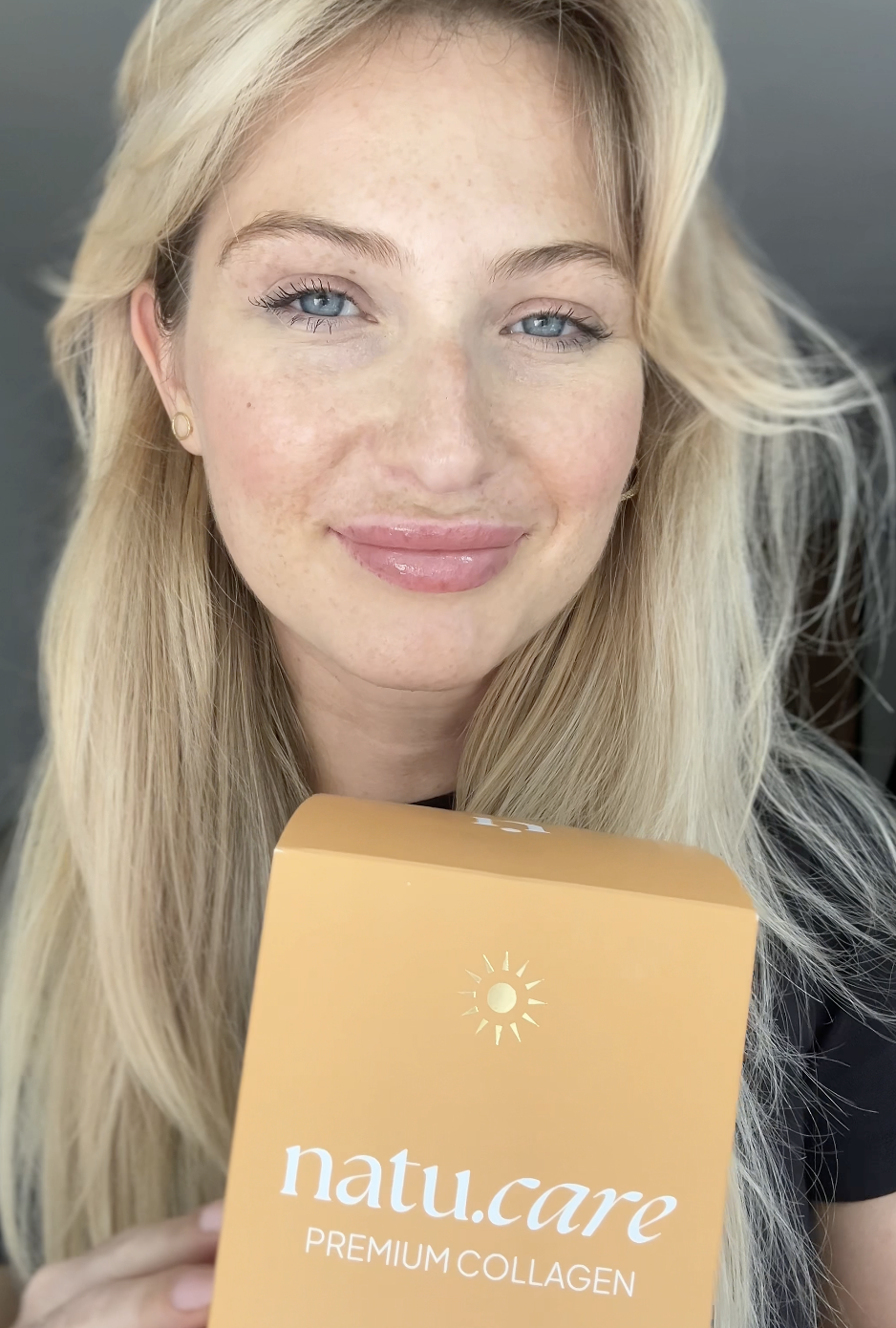
Wybrałam kolagen Natu.Care, ponieważ miał super opinie – a to było dla mnie bardzo ważne! Odkąd go stosuję, moja skóra znacznie się poprawiła i jest nawilżona, a na głowie pojawiły się nowe "baby hair".@Kasia S.
See also:
.
- Which collagen to choose? .
- What destroys collagen? .
- What are the symptoms of collagen deficiency? .
- How to supplement collagen? .
- What is collagen? .
What is type III collagen responsible for?
.
Although type III collagen is the second most common type of collagen in the body, its contribution to the physiological maintenance and repair of skeletal tissues is yet to be fully exploredand.
Type III collagen in bones was only discovered in 1991. Prior to that, it was thought to simply not be there..
 .
.
Ilona Krzak Master of Pharmacy
Type III collagen works together with type I collagenand. Together, they provide structural support and maintain tissue integrity in the body. The combination of type 1 and type 3 collagen fibres gives elasticity to tissues.
The uterus enlarges more than 100 times during pregnancy.
 .
.
Ilona Krzak Master of Pharmacy
Type III collagen is particularly important for wound healing and tissue regeneration - it also helps in the formation of new blood vessels and collagen fibres, as well as platelet aggregationand.
During collagen remodelling, type II collagen is replaced by type I collagen to restore the normal collagen composition of the skin .
In addition, type III collagen is involved in the formation of the basement membrane, which has a protective function for tissues and organs , and also interacts with platelets in the clotting process .
.
See also:
.
- What does collagen help with? .
- Collagen for the skin .
- Collagen for the face
- Hair collagen
- Collagen for wrinkles
- Collagen for stretch marks
- Collagen for cellulite
- Collagen for acne
- Collagen for joints
- Collagen for athletes .
What is the difference between collagen types 1, 2 and 3?
.
The major types of collagen differ primarily in their structure and structure (primarily the number of alpha-1 and alpha-2 chains - that's enough for you now) and where they are found in the bodyand.
Type I collagen is the most abundant type of collagen in the body - making up as much as 90% of all collagen. It is found in skin, bones, tendons and ligamentsand.
Type II collagen is the main component of joint cartilage. It is also found in the auricle, nasal septum and intervertebral discs.
Type III collagen is present in skin, lungs, blood vessels, uterus and fetal tissues, among others. Type 3 collagen regulates type 1 collagen fibres and can also be found in reticular fibres, such as bone marrowand.
See also:
.
- Collagen type 1 .
- Collagen type 2
- Collagen peptides
- Collagen hydrolysate .
- Lyophilised collagen
- Lysine
- Best hair supplements
- Best supplements for nails
- Best multivitamins
Summary
.
- Collagen type 3 is - after collagen type I - the second most common collagen in the human body. .
- It is present in many tissues of the body, including the skin, muscles, blood vessels or lungs, as well as in the tissues of the foetus.
- Collagen type III is the most common type of collagen in the human body.
- Type III collagen strengthens and ensures tissue integrity, promotes tissue regeneration and wound healing, and helps build blood vessels. .
- Collagen type III and type I fibres combine to give elasticity to tissues in the body. .
- Collagen supplements have a combination of type I and type III collagen in their formulation.
- Collagen supplements have a combination of type I and type III collagen in their formulation.
FAQ
.How many types of collagen are there?
.Today there are said to be nearly 30 types of collagen - 28 to be exact. From your health and beauty perspective, the most important are type I, type II, type III and X.
For more interesting facts and benefits of collagen, see: 47 facts about the properties of collagen.
What kind of collagen for the skin?
.The most important for skin is type I collagen. To improve its condition, radiance, firmness or colour a better solution than cosmetics and creams will be collagen supplements. The collagen molecules used in creams are usually too large to reach the dermis. In this form, they may help to moisturise it, but the effect will not be long-lasting. If you want long-lasting results, work from within.
Check out what is the best collagen for the skin.
.What is the best collagen in tablets?
.Choosing collagen tablets is difficult as new products are constantly appearing. Before buying, pay attention to the collagen content per dose, the origin and form of the collagen in question. Consider that there are also options in sachets, ampoules and shots if you want to conveniently take collagen on the go.
Are collagen and gelatine the same thing?
.Collagen and gelatine are two different substances, but they have a few things in common. Gelatin is a product that is obtained from collagen by boiling and evaporating water.
Collagen is used in cosmetics, medicine and for supplementation. Gelatine is primarily used in the catering and food industry. Your favourite jellies have a lot of gelatine, but for health purposes and to supplement collagen deficiency, choosecollagen supplements.
Is collagen well absorbed?
.Collagen bioavailability depends mainly on the source and how it is produced.
The best absorbed collagen is hydrolysed fish-derived collagen in the form of small peptides. Fish collagen (sea collagen) is absorbed up to 50% better than beef collagen.
What are collagen peptides?
.Collagen peptides are short chains of amino acids, small collagen molecules that are formed during the process of collagen hydrolysis. The smaller the molecules, the more easily collagen is absorbed. Therefore, for supplementation choose products with collagen peptides.
Is vitamin K involved in collagen synthesis?
.Vitamin K plays an important role in collagen synthesis. It is essential for the modification and activation of collagen-forming proteins. Without sufficient vitamin K, collagen may not be fully functional and unable to maintain proper structure.
Also important for the natural production of collagen is vitamin C.
Which fish collagen to choose?
.When choosing fish collagen (sea collagen), pay attention to its dose per serving, as well as its origin and method of production. Check if the manufacturer uses patented ingredients or states where the raw material comes from and how the collagen is sourced.
What meat has the most collagen?
.Based on the available literature, it is difficult to say unequivocally which meat has the most collagen. Its amount will vary depending on the type of meat and where the cut in question comes from. Some studies show that high amounts of collagen are contained in beef tendon, cod and eel skin or shark tail, among others. It has also been found that the content, bioavailability and properties of collagen also decrease with cooling.
Products (and foods) rich in collagen are primarily meat jellies, fruit jellies, offal, broth or chicken feet and fish - the latter also being a rich source of omega-3 acids.
Will I get collagen as a medicine?
.No, there is no collagen on the market with drug status - you can buy collagen supplements in both pharmacies and drugstores. Remember to choose a particular product primarily based on the collagen content, its origin, form, form and additional active ingredients.
.
Sources
See all
.Allard-Ratick, M. P., McCarthy, C. P., & Jang, I.-K. (2021). Letter by Allard-Ratick et al Regarding Article, "Coronary Optical Coherence Tomography and Cardiac Magnetic Resonance Imaging to Determine Underlying Causes of Myocardial Infarction With Nonobstructive Coronary Arteries in Women". Circulation, 144(12), e206-e206. https://doi.org/10.1161/CIRCULATIONAHA.120.053480
Archile-Contreras, A. C., Cha, M. C., Mandell, I. B., Miller, S. P., & Purslow, P. P. (2011). Vitamins E and C May Increase Collagen Turnover by Intramuscular Fibroblasts. Potential for Improved Meat Quality. Journal of Agricultural and Food Chemistry, 59(2), 608-614. https://doi.org/10.1021/jf103696t
Asai, T., Takahashi, A., Ito, K., Uetake, T., Matsumura, Y., Ikeda, K., Inagaki, N., Nakata, M., Imanishi, Y., & Sato, K. (2019). Amount of Collagen in the Meat Contained in Japanese Daily Dishes and the Collagen Peptide Content in Human Blood after Ingestion of Cooked Fish Meat. Journal of Agricultural and Food Chemistry, 67(10), 2831-2838. https://doi.org/10.1021/acs.jafc.8b06896
Eble, J. A., Kassner, A., Niland, S., Mörgelin, M., Grifka, J., & Grässel, S. (2006). Collagen XVI Harbors an Integrin α1β1 Recognition Site in Its C-terminal Domains *. Journal of Biological Chemistry, 281(35), 25745-25756. https://doi.org/10.1074/jbc.M509942200
Effect of refrigeration on the collagen and texture characteristics of yak meat. (n.d.). Retrieved 25 May 2023, from https://cdnsciencepub.com/doi/10.1139/cjas-2021-0059
Ichikawa, T., Horie-Inoue, K., Ikeda, K., Blumberg, B., & Inoue, S. (2006). Steroid and Xenobiotic Receptor SXR Mediates Vitamin K2-activated Transcription of Extracellular Matrix-related Genes and Collagen Accumulation in Osteoblastic Cells *♦. Journal of Biological Chemistry, 281(25), 16927-16934. https://doi.org/10.1074/jbc.M600896200
Kuivaniemi, H., & Tromp, G. (2019). Type III collagen (COL3A1): Gene and protein structure, tissue distribution, and associated diseases. Gene, 707, 151-171. https://doi.org/10.1016/j.gene.2019.05.003
Liu, X., Wu, H., Byrne, M., Krane, S., & Jaenisch, R. (1997). Type III collagen is crucial for collagen I fibrillogenesis and for normal cardiovascular development. Proceedings of the National Academy of Sciences, 94(5), 1852-1856. https://doi.org/10.1073/pnas.94.5.1852
Rørtveit, R., Reiten, M. R., Lingaas, F., Sveri, S. B., Brech, A., Espenes, A., & Jansen, J. H. (2015). Glomerular Collagen V Codeposition and Hepatic Perisinusoidal Collagen III Accumulation in Canine Collagen Type III Glomerulopathy. Veterinary Pathology, 52(6), 1134-1141. https://doi.org/10.1177/0300985814560237
Sato, T. (2013). Vitamin K2 and Bone Quality. Vitamins & Minerals, s6. https://doi.org/10.4172/2167-0390.S6-001
Stanchev, S., Stamenov, N., Kirkov, V., Dzhambazova, E., Nikolov, D., & Paloff, A. (2020). Differential collagen expression in kidney and heart during hypertension. Bratislavske Lekarske Listy, 121(1), 73-78. https://doi.org/10.4149/BLL_2020_011
Wang, C., Brisson, B. K., Terajima, M., Li, Q., Hoxha, K., Han, B., Goldberg, A. M., Sherry Liu, X., Marcolongo, M. S., Enomoto-Iwamoto, M., Yamauchi, M., Volk, S. W., & Han, L. (2020). Type III collagen is a key regulator of the collagen fibrillar structure and biomechanics of articular cartilage and meniscus. Matrix Biology, 85-86, 47-67. https://doi.org/10.1016/j.matbio.2019.10.001
Wu, J.-J., Weis, M. A., Kim, L. S., & Eyre, D. R. (2010). Type III Collagen, a Fibril Network Modifier in Articular Cartilage *. Journal of Biological Chemistry, 285(24), 18537-18544. https://doi.org/10.1074/jbc.M110.112904
Jelonek, L. (2023). Collagen. Everything you need to know (B. Turczynski, ed.; 1st ed.). Natu.Care. https://books.google.com/books?vid=9788396887801
..
Editorials
Meet the team

Ilona Krzak obtained her Master of Pharmacy degree from the Medical University of Wrocław. She did her internship in a hospital pharmacy and in the pharmaceutical industry. She is currently working in the profession and also runs an educational profile on Instagram: @pani_z_apteki

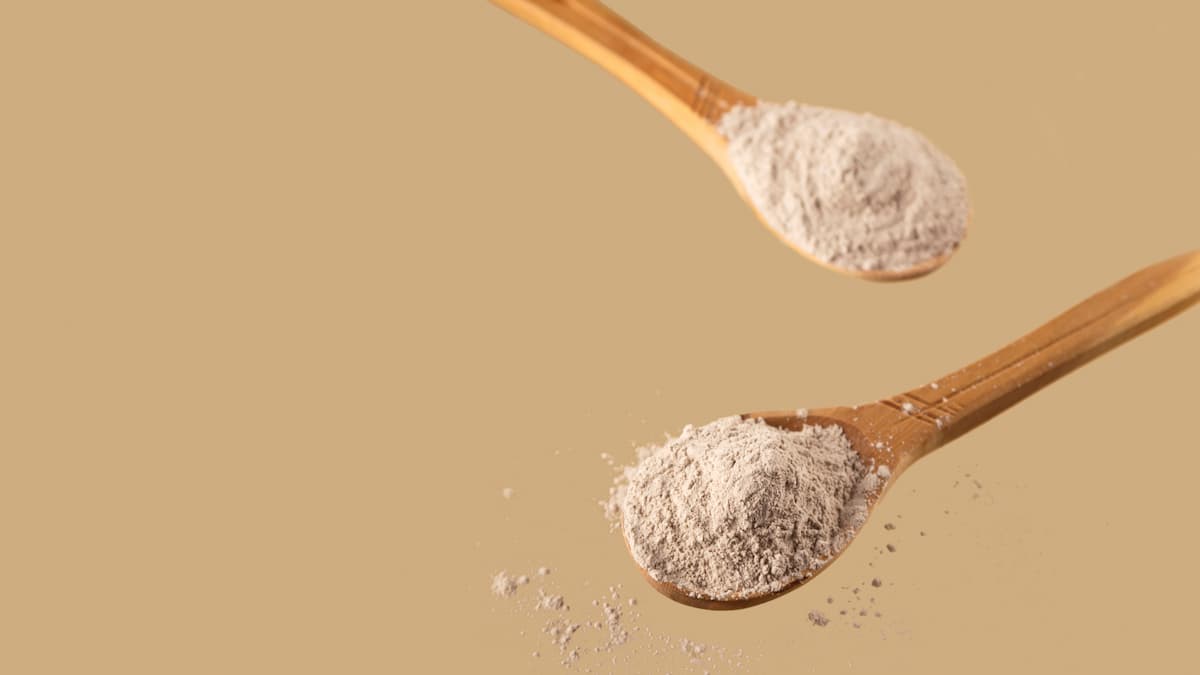
Everything you want to know about COLLinstant collagen.

Collibre collagen is an interesting supplement in shot form.
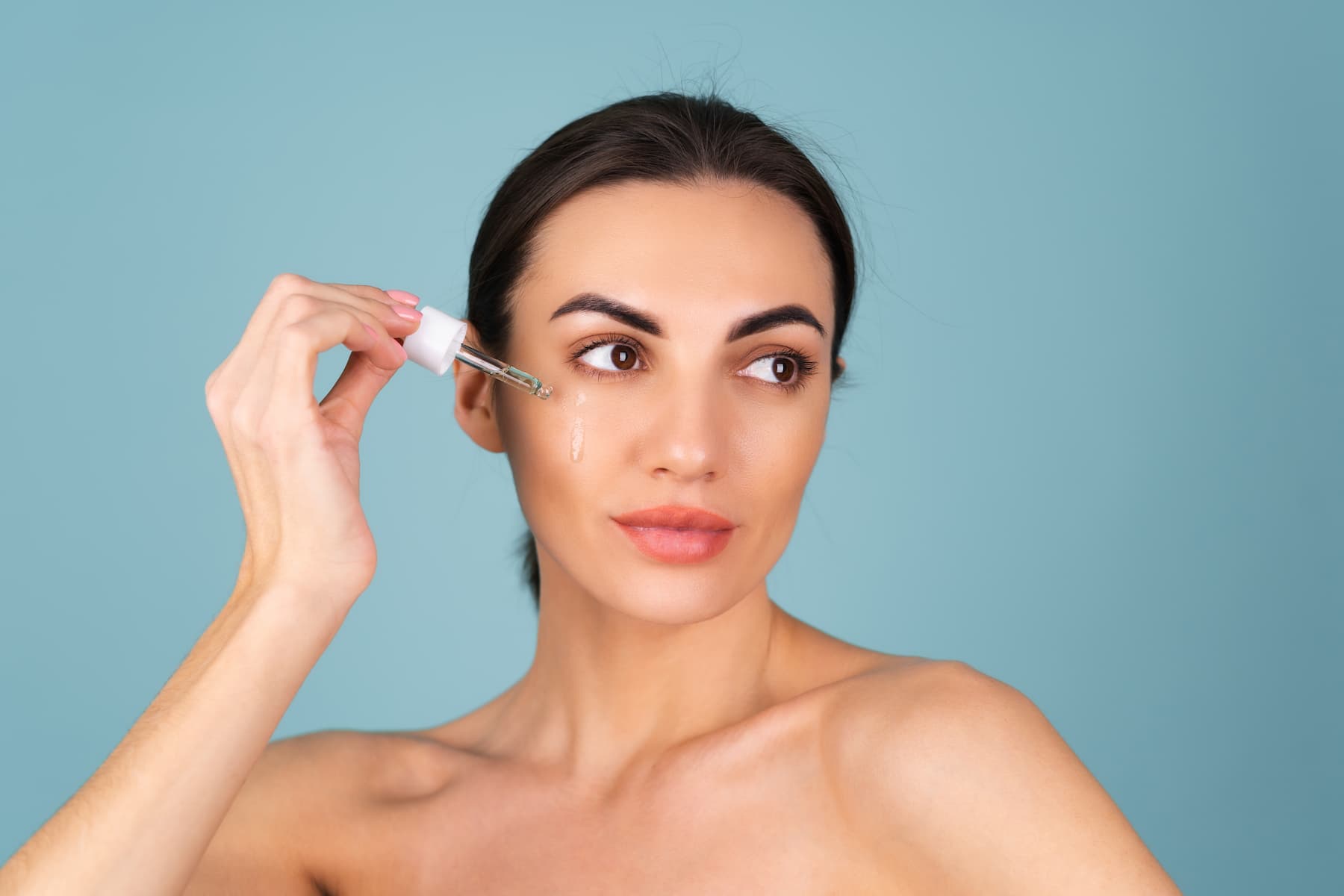
Solgar collagen with hyaluronic acid is a dietary supplement that supports skin and joint health.
